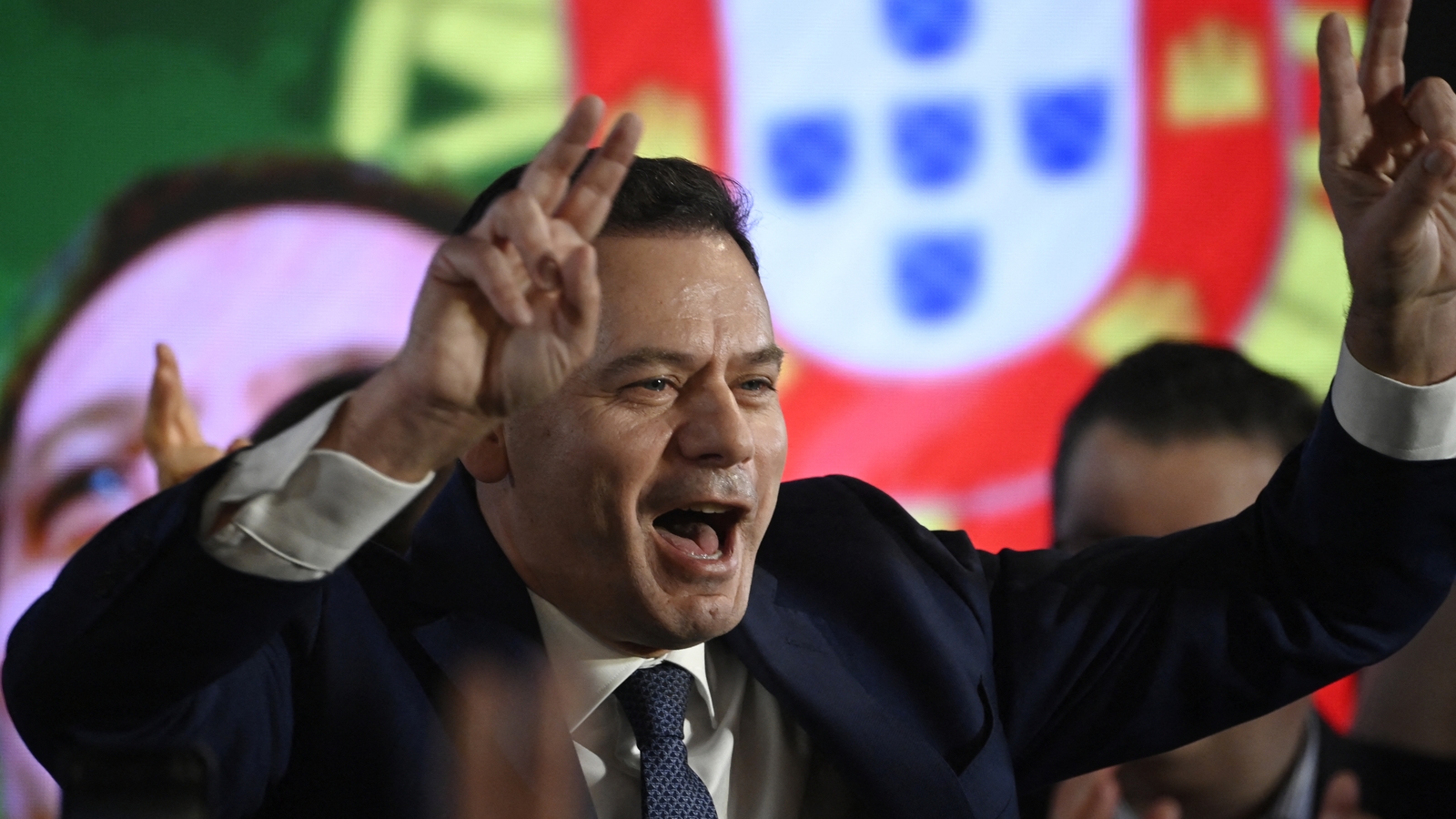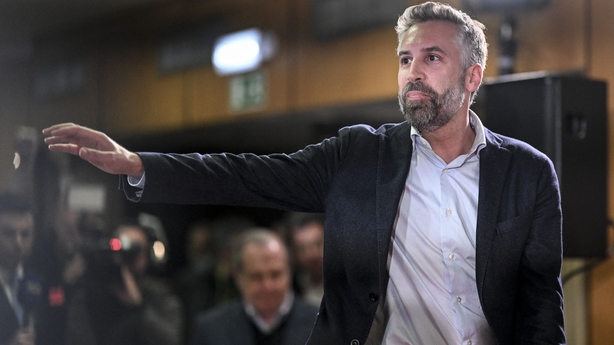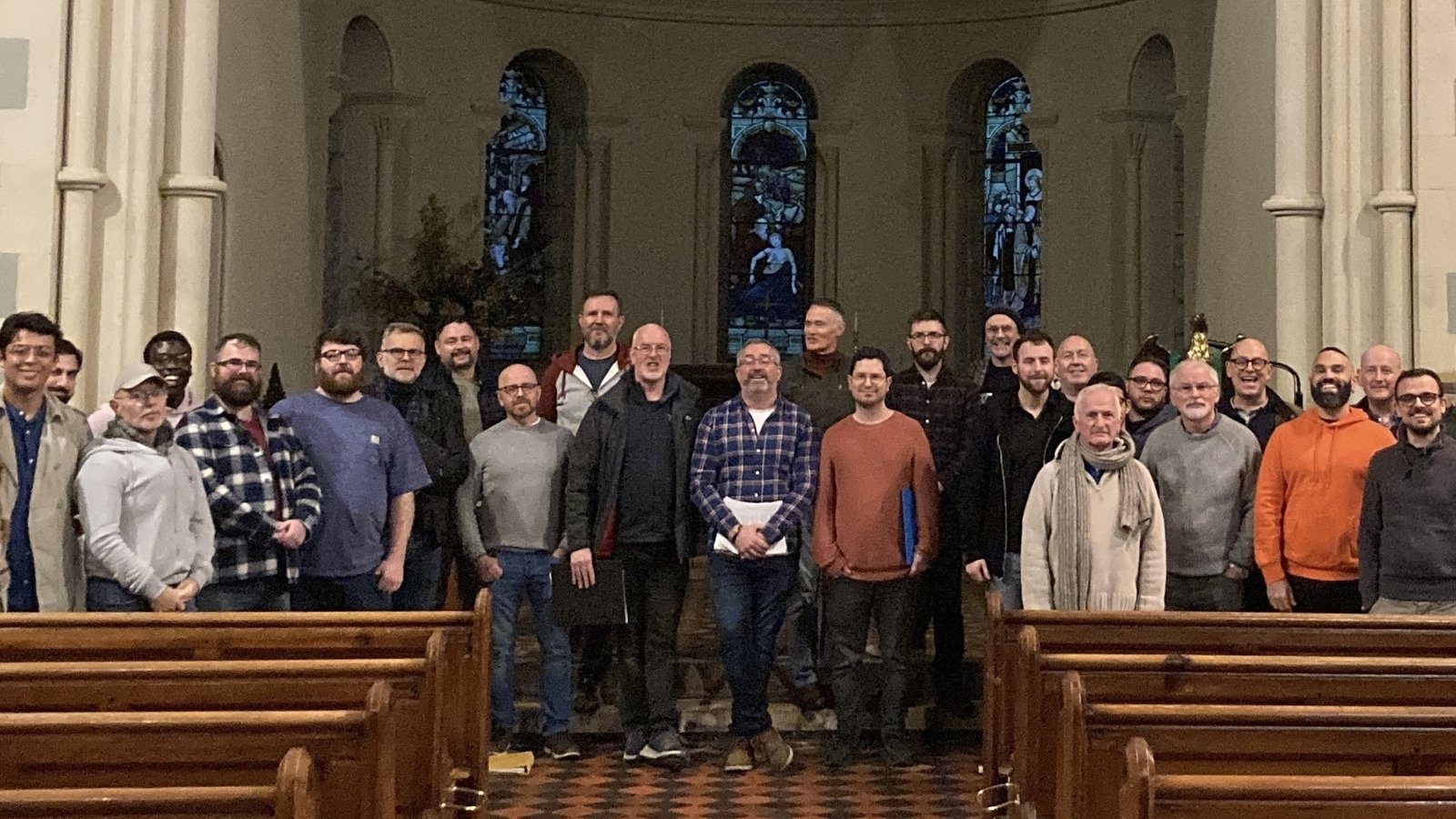Portugal’s conservatives win election as far-right surges

Portugal’s centre-right Democratic Alliance (AD) won the country’s general election, its leader Luis Montenegro said, however it was unclear if he could govern without the support from far-right Chega, with whom he again refused to negotiate.
Chega’s parliamentary representation more than quadrupled to at least 48 politicians in the 230-seat legislature, giving the combined right a majority.
The result underscores a political tilt to the far right across Europe.
Portugal, which only returned to democracy after the fall of a fascist dictatorship 50 years ago, had long been considered immune to the rise of right-wing populism across the continent, which is expected to result in gains for far-right parties in European elections in June.
Earlier, Mr Montenegro’s main rival, Pedro Nuno Santos, conceded defeat after his left-leaning Socialist Party (PS), in power since 2015, came in second by a razor-thin margin.
He ruled out supporting the AD’s platform which includes across-the-board tax cuts.
“The AD won the election,” Mr Montenegro told a crowd of ecstatic supporters, adding that it was crucial for parties in the new parliament to act responsibly and “comply with the wish of the Portuguese people”.
President Marcelo Rebelo de Sousa still has to formally invite the AD leader to form a government, which Mr Montenegro said he expected to happen.

The AD and its conservative allies in the insular Madeira Region won a total of at least 79 seats, ahead of the PS’s 77.
Four seats were yet to be awarded after the final count of ballots from abroad.
The PS had trailed the AD in most opinion polls since Socialist Prime Minister Antonio Costa resigned in November amid a corruption investigation.
The far-right party campaigned on an anti-establishment message, vowing to sweep away corruption and expressing hostility to what it sees as “excessive” immigration.
Chega leader Andre Ventura told reporters the vote “clearly showed that the Portuguese want a government of the AD with Chega”. He earlier said Montenegro would be responsible for any political instability if he continued to refuse to negotiate.
The PS and the Social Democratic Party (PSD), which helms the newly created AD, have alternated in power since the fall of the dictatorship in 1974.
Issues dominating the campaign in western Europe’s poorest country include a crippling housing crisis, low wages, sagging healthcare and corruption, seen by many as endemic to the mainstream parties.
Still, under the Socialist leadership Portugal has grown at solid annual rates above 2%, and posted budget surpluses of late, using the cash to slash the public debt below 100% of GDP and winning praise from Brussels and investors, who do not expect the AD to abandon the path of fiscal prudence.




